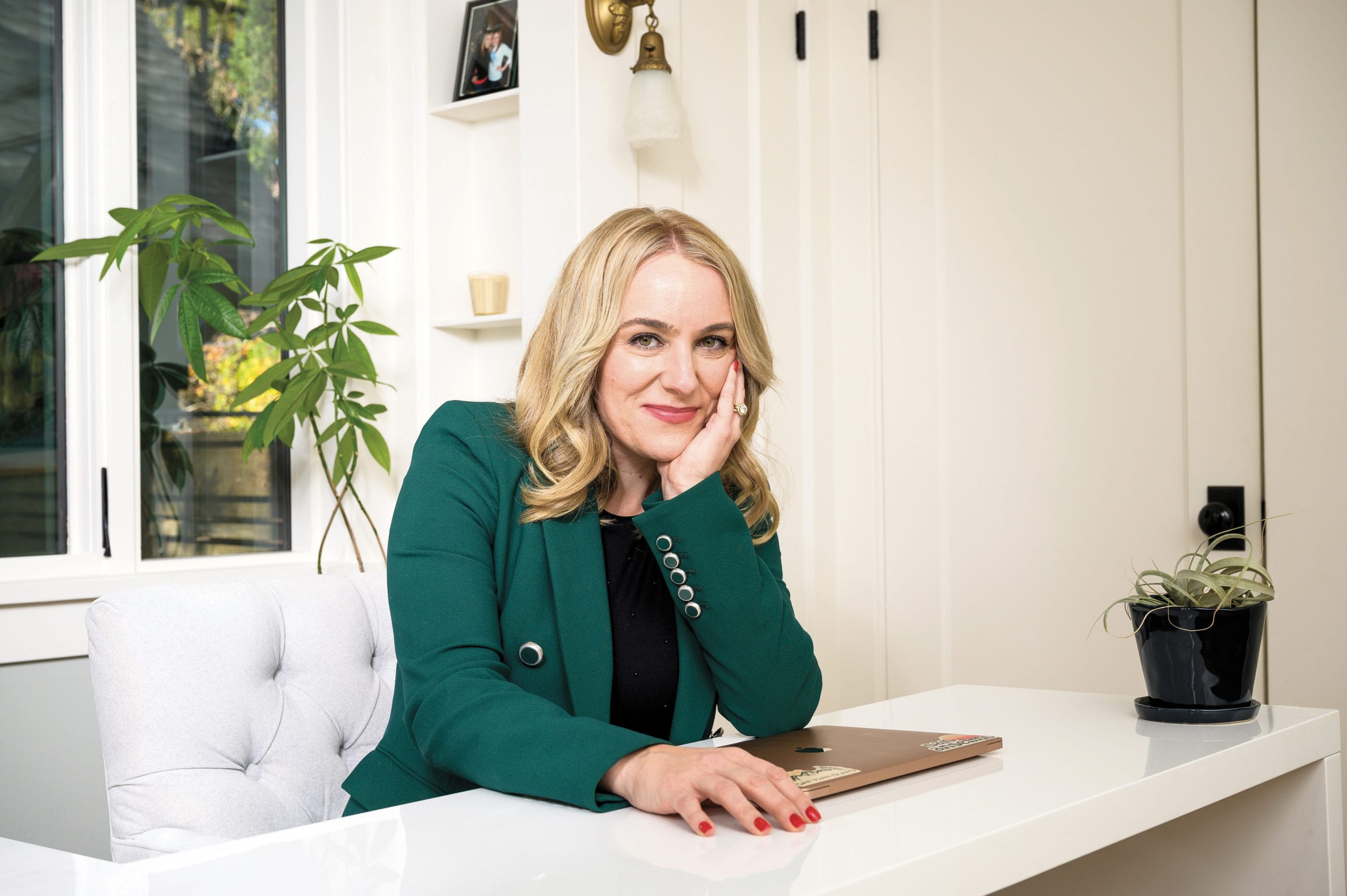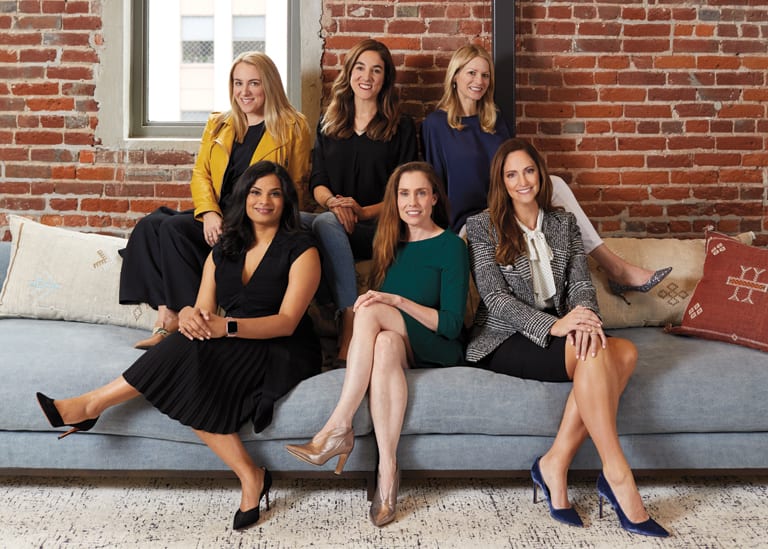Highflier and investor April Underwood, MBA 07, is determined to close the ownership chasm

After 20 years at the heart of San Francisco’s tech scene, April Underwood is on a mission to challenge male domination of the startup community in Silicon Valley and the Bay Area.
Her CV reads like a roll call of tech’s top companies. She worked at Intel before earning her MBA at Haas in 2007. During her studies she was an intern at Apple and afterwards became a senior technology manager at Google. She then moved to Twitter and on to Slack where she eventually became its chief product officer, benefiting from both companies’ IPOs along the way.
The experience highlighted to Underwood that while the gender pay gap in Silicon Valley is well known, the gender equity gap is less so. “A lot of attention is given to salary differences, but there is currently no transparency on equity ownership,” Underwood says. “It is equity that makes you wealthy in Silicon Valley, not your salary.”
Now, alongside founding new growth advisory company Wise Owl, Underwood is focused on #Angels, an investing “collective” she co-founded in 2015 with colleagues from Twitter. Alongside investing in companies, the group is also pushing for more transparency around who owns startups.

“It started from a shared desire we had to angel invest,” Underwood explains. “Frankly, we wanted to be like our male peers who were getting involved in some of the most successful companies in the community.”
She and her #Angels co-founders all joined Twitter in 2010 when it employed just 150 people. Part of the benefit of joining a tech startup early is the chance to gain equity in the business, with grants tending to decrease as the company matures. While it is a risky move, the gamble can pay dividends if the business goes public or is acquired, something former employees can benefit from if they hold on to their shares.
Underwood and her colleagues worked hard at witter as the company grew to more than 5,000 employees and listed on the New York Stock Exchange in 2013. The windfall they received from their shares sparked the idea of pushing for more female equity stakeholders in new ventures.
The goal of #Angels is to bring the same level of transparency to the gender divide in angel investing as has been given to gender pay divides, Underwood adds.
The most significant achievement of #Angels to date is the creation of Gap Table, a piece of research that looks at the ownership of startups with venture capital by gender. The name is a pun on the term cap table, which is a legal document recording who owns what shares in a company and how many of them they control.
According to the #Angels team, there are four main groups of people who have significant ownership on Silicon Valley cap tables: founders, investors, senior executives, and early employees.
Women are underrepresented in each of these key roles, the Gap Table research revealed. “It’s no exaggeration to estimate that a founder or senior executive has 100 or 1,000 times the number of shares compared to a non-early member of the team, particularly in large organizations,” the group writes on its blog.
A company may have 30% female employees, but if women are not proportionately represented as founders, executives, early employees, and investors, they will own far less than 30% of the company, #Angels argues. “Viewed through this lens, the power dynamics of the technology industry are far more lopsided than we currently measure,” they add.
Underwood hopes that the research of the Gap Table project will spark real change in the gender balance of investment teams. However, she notes, they are only one part of a much wider movement to bring greater equality to the tech sector. “There are all sorts of different groups coming at different parts of the inequalities in the tech startup world,” she says. “There is not one group that moves the needle for everybody. It will be a combination of all these efforts.”

Excerpt from Jonathan Moules, 2020, “On a mission to close Silicon Valley’s gender equity gap,” Financial Times / FT.com, Jan. 21. Used under license from the Financial Times. All Rights Reserved.